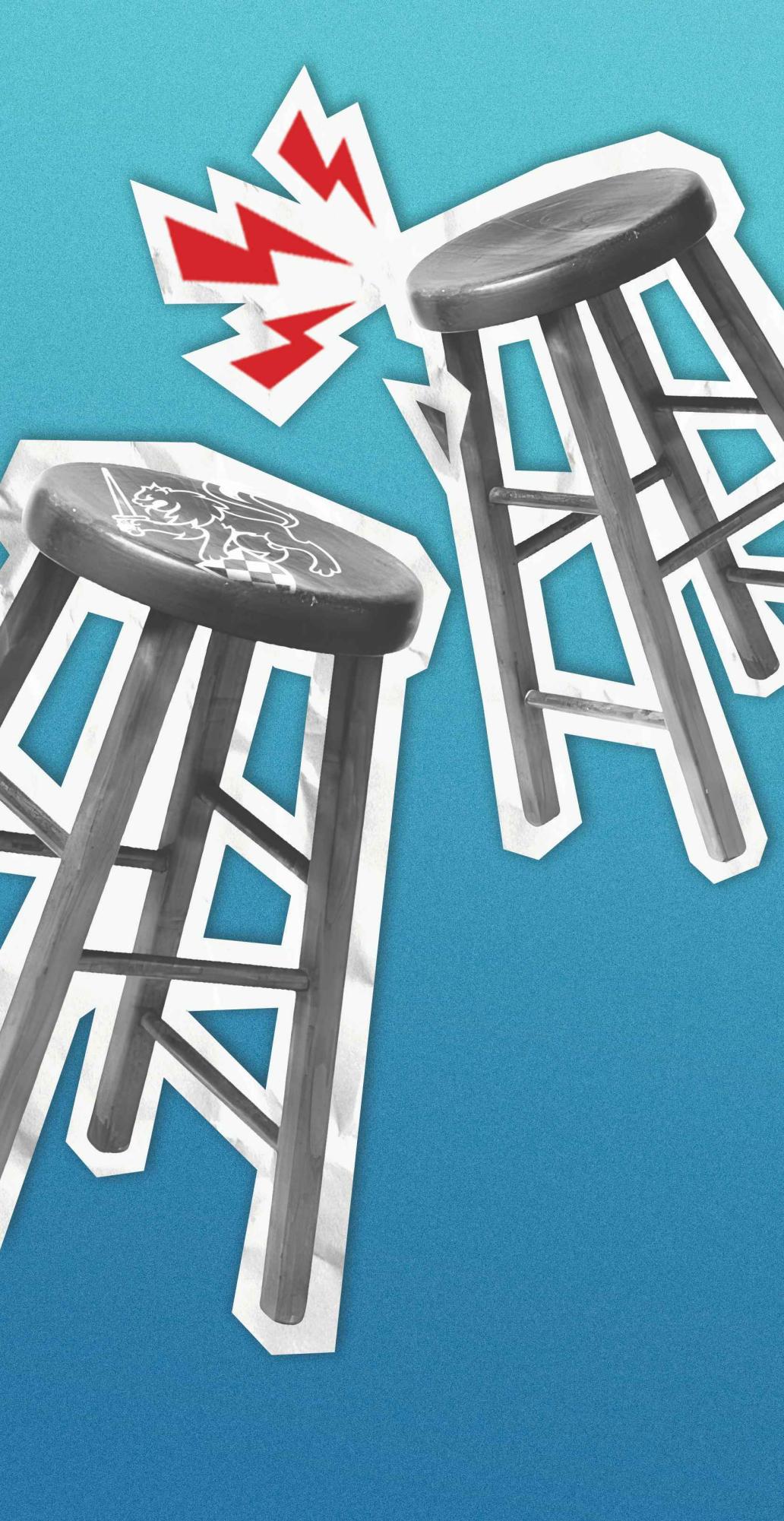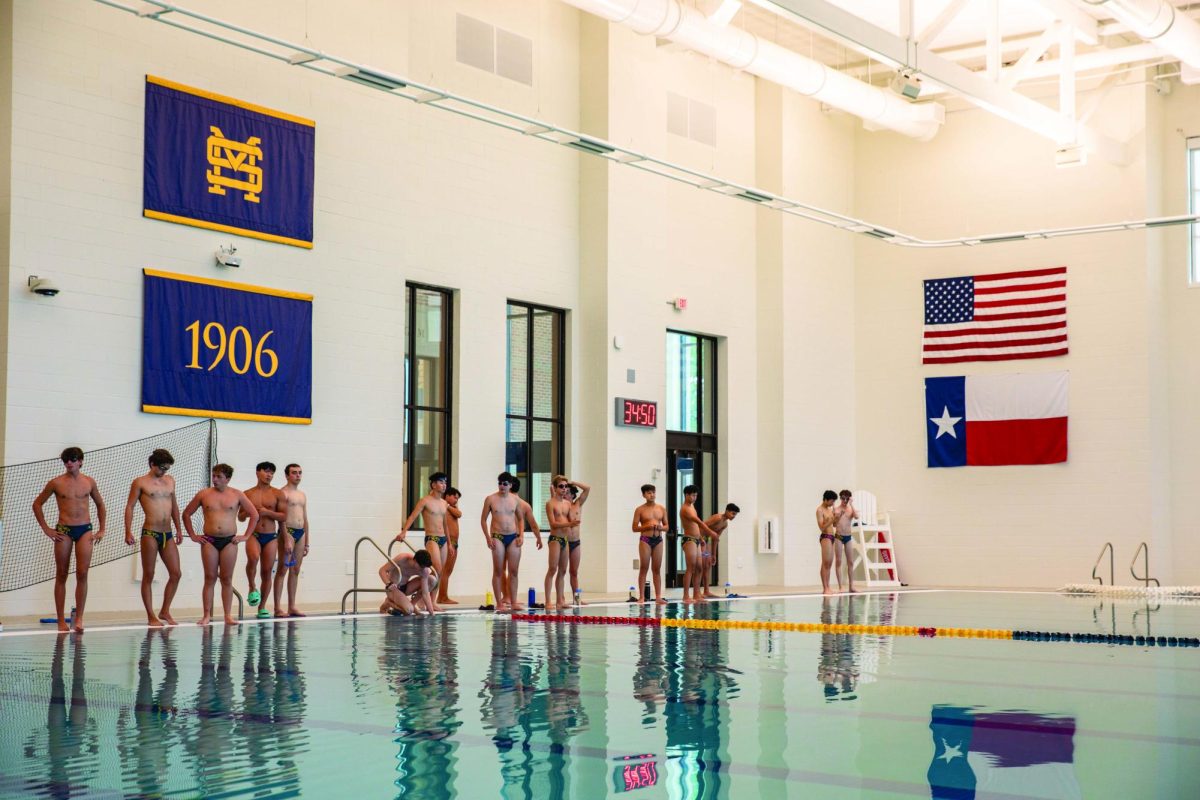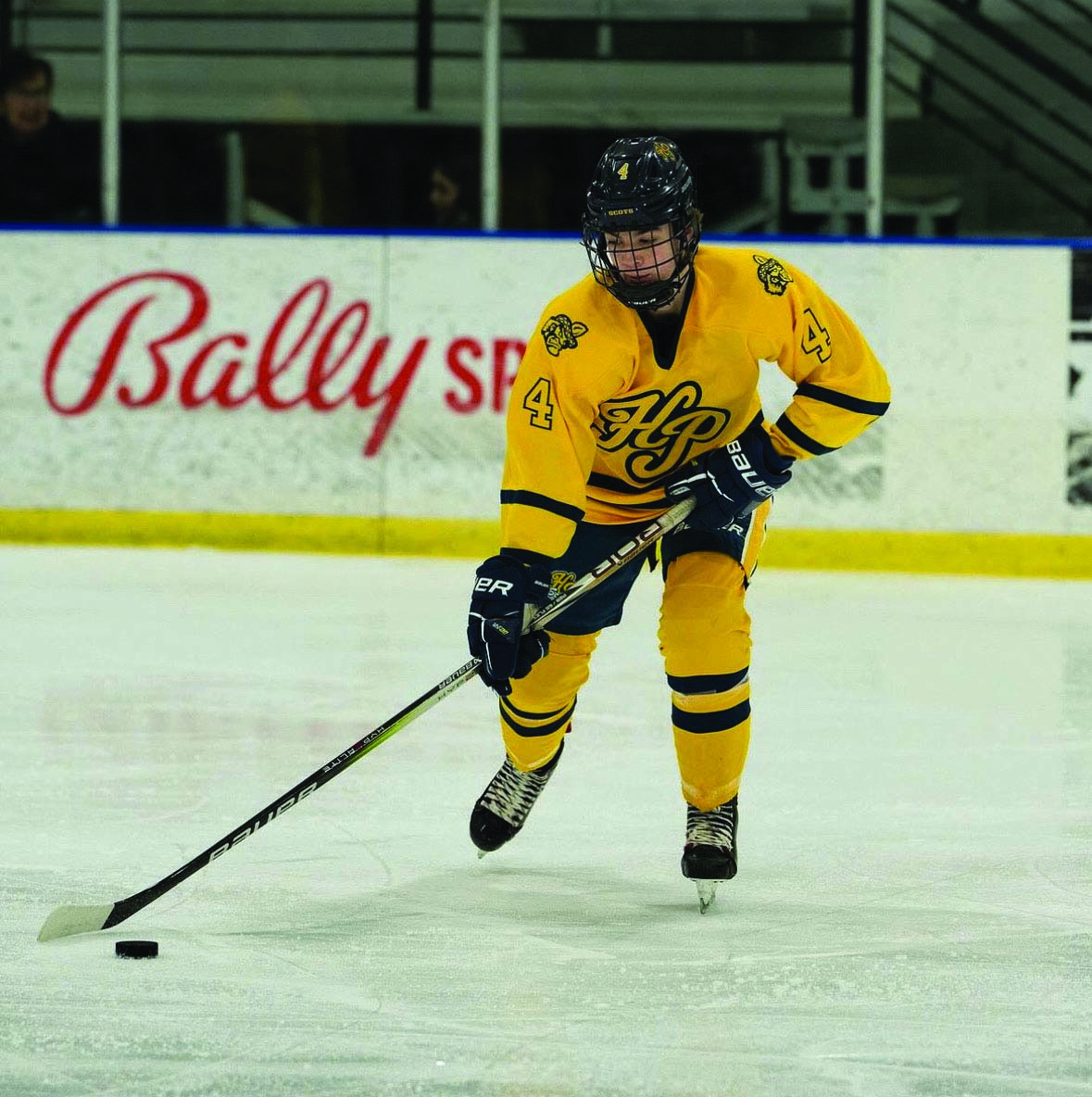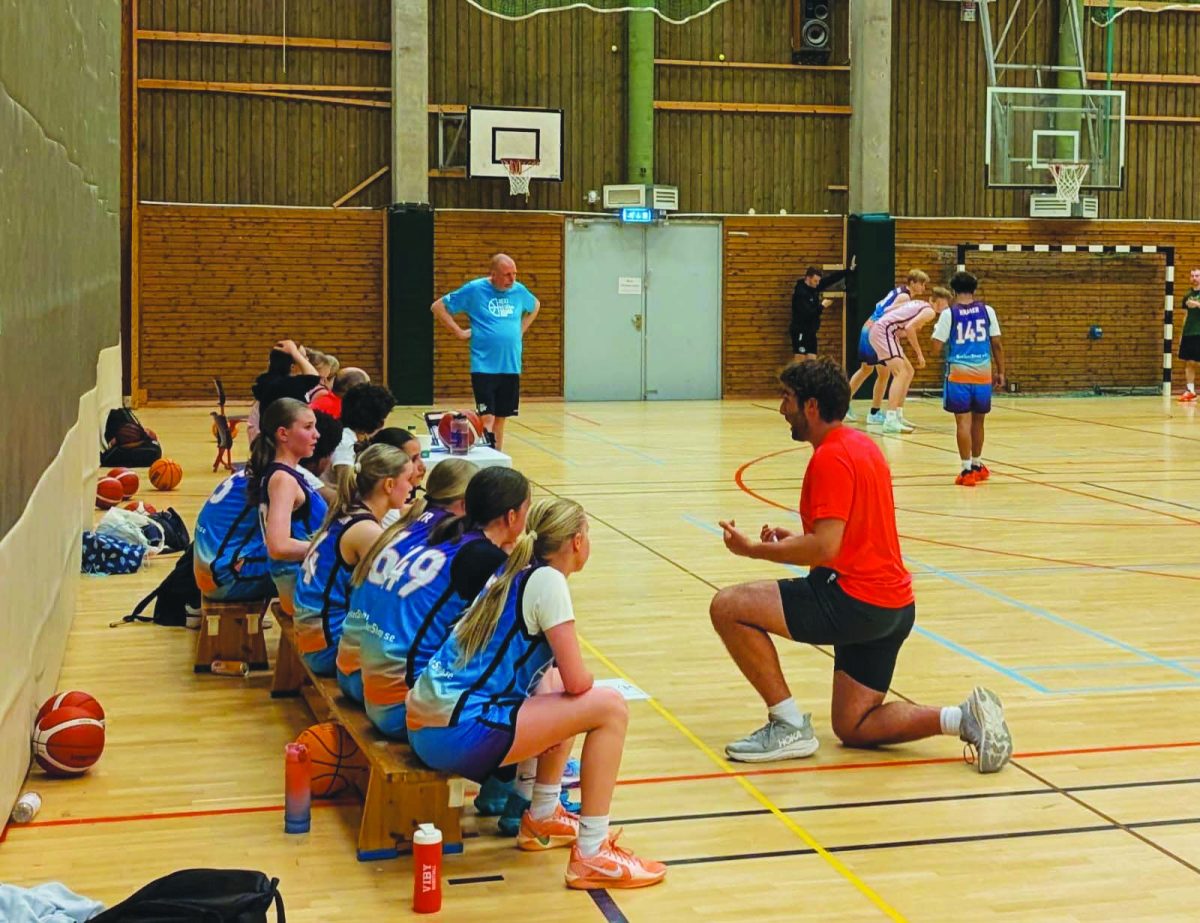The bleachers are packed. The SuperFanMen are on their feet, phones in hand, chants echoing through the stands. Livestreaming each second of the game, the SuperFanMen upload their support of school athletics, encouraging positive interactions without disrespecting their opponent — an ideal display of sportsmanship.
But only a few scrolls further — on Twitter, TikTok or a burner Instagram account — a different kind of atmosphere develops. One not fueled by cheering and school spirit, but by anonymous attacks and online antagonism. An atmosphere that promotes breakout fights and disrespectful jabs at other schools. Social media highlights content that’s entertaining, yet often negative. In an age of viral videos and barstool hype accounts, the biggest challenge to sportsmanship isn’t always on the field; it’s on the feed.
Interacting online creates an avenue to cover one’s identity and make comments anonymously, hiding behind a screen to avoid the consequences of one’s actions. In a competitive world with heated rivalries and continuous trash talk, it seems easy to make offensive remarks in hopes of hurting others’ morale.
Head of Upper School William Atkinson expects Marksmen to uphold the same values they do in school when competing in athletics, whether in person or online. As a sports fan himself, Atkinson believes in relentless competition as long as it doesn’t diminish others.
“I expect them to be fierce competitors, absolutely fierce competitors. When other teams line up against the Lions, they should know they’re going to have a tough day,” Atkinson said. “But the way the boys express that, and the athletes express that, is through their actions and efforts between the whistles. You know, it’s not through words, it’s through our actions.”
Atkinson also expects students to realize the difference between positive and negative interactions, as well as identifying the line between harmless banter and disrespectful comments. For Atkinson, it is ultimately up to the student to make decisions based on their morals.
“If a boy feels the need to create a fake account, he’s acknowledging,in that moment, that he does not want his actions to reflect on him as an individual,” Atkinson said. “So that should be a warning sign that you are not doing something that is aligned with our core values as a school or as an individual.”
Social media’s influence on sports isn’t always negative. When used with the right intentions, it can raise school spirit, increase attendance at games, and create a shared excitement among students and athletes. Many Marksmen have seen firsthand how online energy can lead to real-world enthusiasm.
Senior Mateu Parker, a captain of the varsity track team and member of the SuperFanMen, sees both sides of the issue. He understands the power social media can have to energize a crowd and build momentum.
“I think barstool makes the anticipation of games more fun,” Parker said. “It creates bigger crowds and builds excitement. But in terms of sportsmanship? It doesn’t really help.”
By being aware of social media’s impact on sportsmanship, Parker and the rest of the SuperFanMen try to solely focus on Marksmen success rather than the opponents’ loss. Atkinson admires the SuperFanMen’s effort to maintain good relationships with their rivals, and encourages others to follow their path.
“I think they [SuperFanMen] do a wonderful job, and I’m so proud of what they do for the school,” Atkinson said. “They not only unify the school, but support our teams and represent our school, our teams, themselves and our community in a positive manner. I think that’s a good example of using a platform in a positive way to unify, instead of as a vehicle to hurt feelings or cause dissent with other people.”
Parker has experienced the powerful effect social media can have when it’s used to spread positive energy around the campus. He believes there’s a balance to be made between healthy hype and harmful criticism.
“There’s a line,” Parker said. “As long as you don’t cross that line, where it gets personal and goes beyond sports, you can still be competitive and have fun.”
The challenge lies in recognizing where that line is. Atkinson believes that starts with consistency.
“I want the boys to behave the same no matter who they’re playing,” he said. “Rivalries are healthy, and they should be intense. But like in any relationship, a rivalry comes with responsibilities. There should always be mutual respect.”
Ultimately, Marksmen athletes are taught to lead with honor, win with humility and lose with grace. That same code applies when the jersey comes off and the phone comes out.
In a time where a post can reach more people than a pep rally and a caption can hurt more than a chant, the responsibility of sportsmanship has increased. The question for every Marksmen is no longer how will you play, but also how will you post.







